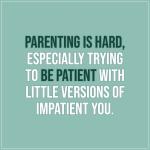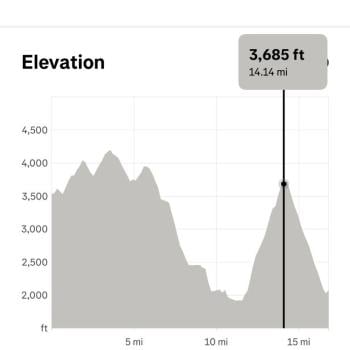It is curious when you realize that you are the same age as the people you thought were old in high school. In an article from a website entitled “Do You Remember” (https://doyouremember.com/169911/retrospective-aging-influences-perspective which references this YouTube video: https://www.youtube.com/watch?v=vjqt8T3tJIE&t=104s ), the author considers the idea of “retrospective aging”. Here, the author discusses why people of the past looked older even though they may be same age as the person looking at the picture in the present. Essentially, the author and the presenter in the video point out that people look older due to clothing and hairstyles. The presenter does note that people are generally healthier and living longer now and this correlates with other research in this area.
Every now and again, something comes up in the media or in the world of sports where an older person is particpating and people think that they should not. It was once believed through most of the last century (1900 – mid 90’s) that older people could not participate or even should not participate in exercise.
The Psychophysiology of Aging
The HEALTH AND PLACE INITIATIVE (HAPI) https://research.gsd.harvard.edu/hapi/files/2014/10/HAPI_ReserachBrief-Aging-PhyPsy-102814-FINAL.pdf investigates how to create healthier cities in the future, with a specific emphasis on China. Bringing together experts from the Harvard Graduate School of Design (HGSD) and the Harvard School of Public Health (HSPH), they produced a research brief entitled “Physiology and Psychology of Aging, Health and Place”.
In this brief, I found this point, “no single theory or mechanism to explain aging has emerged. Rather it seems to be a result of multiple causes”. I find this point to be encouraging, multiple causes. Furthermore, the brief points out that chronic diseases associated with aging are preventable or modifiable, and related to social, cultural, environmental, and lifestyle factors.
Physiology
It is understood that certain things change when one gets older. For me, cresting the mid forty hump and in concert with some post covid issues, recovery has been a surprising turn of events. Twelve years ago, when I got into endurance running, it would be common to crank out fifty-mile weeks without a sneeze. Post Covid malaise and normal aging have created new challenges.
The research bears this out. Starting at age 30, one will experience changes in muscle, and this declines precipitously after 50. Ligaments that were once loose and limber become thicker and less stretch. There are many physical changes that occur, but none of these imply that one must stop exercising or being physically active
Psychology
Not everyone gets dementia or forgetfulness when they get older. The notion of the fragile, hard of hearing and sometimes forgettable senior is a trope that many like to make. This could not be farther from the truth for many seniors. Consider this thought from the bulletin referenced earlier, “Until around age 85, typical aging causes only minor declines in mental functioning. However, after age 85, rates of dementia increase dramatically.”
Fit over Fifty
If you have been sedentary for a period of time, there is no better time than now to get started. When I tell this to my clients, many naturally get overwhelmed, especially because many of them know what I do for physical activity. I stress that they do not have to go hard and in fact, much of the research and recommendations in the field of fitness start new exercisers over the age of 50 at a very low intensity. Trainers like myself must consider a number of factors when starting a new person with exercise.
When considering your second half of life and how to fitness routine into it, you must consider what you want that second half to look like. Do you want to travel with your spouse, or independently? Do you want to be able to play with your grandkids? While I am not 50 yet, I have a 15-year plan to complete as many sections of the Appalachian trail as I can. When one gets fit after 50, they gain a whole new lease on life that puts them in optimal shape to navigate all the challenges that they will face both physi and mentally. See https://www.polar.com/blog/fit-over-50/
A Daily Prescription
We are called to honor our bodies; we are all God’s creation. The spiritual practice of you is a practice of intentionality. High blood pressure, diabetes, cholesterol and obesity are all preventable depending on your genetics. All are attributed to modifiable factors in your life such as diet and exercise. If damage is already done and you are on statins or metformin, all is not lost. Sometimes, one can reduce their dosage of these medications and regardless, any movement is good movement.
Start with talking to your doctor to get cleared for exercise. Then seek out a personal trainer who understands senior fitness. Then take a walk. My standard prescription is walking as a base for about 3 months, gradually building time and speed. If you can only handle 5 minutes, be patient. If you are older and this is a new experience for you, your lifestyle has done a lot of damage to your system. You may be walking around with a few more pounds than you need and your joints may not be very happy about it. But, if you can stick with it, it will get easier.
Secondly, see a nutritionist.
Finally, consider these thoughts from Kristin Jeffery Johnson: https://www.patheos.com/topics/faith-and-aging/every-wrinkle-tells-a-story-kirstin-jeffrey-johnson













